Saturday, February 15, 2025. Annette’s Roundup for Democracy.
Valentine’s Day was the big story yesterday.
Thirty-two years together and you still take my breath away. Happy Valentine’s Day, @MichelleObama! pic.twitter.com/wiIJ0kstRm
— Barack Obama (@BarackObama) February 14, 2025
Happy Valentine’s Day to the love of my life @KamalaHarris. Every day with you is an adventure filled with laughter and joy. Grateful to be by your side through it all. ❤️ pic.twitter.com/AZxKQBKgxg
— Doug Emhoff (@DouglasEmhoff) February 14, 2025
Happy Valentine's Day, Jilly! pic.twitter.com/udLidjS8Ng
— Joe Biden (@JoeBiden) February 14, 2025
Next big was the Eric Adams’ case and the Domino effect - one Prosecutor after another resigned.
Meet two of the Prosecutors who would rather quit than follow Trump’s DOJ’s corrupt orders to drop the case.
First to resign was Danielle Sassoon.
Here is the letter she sent.
Here is her bio.

Sassoon is a life-long far-right conservative, admiring of Antonio Scalia. Even she was pushed over the line by Adams’ and Trump’s corruption.
An Ambitious Prosecutor Quits Rather Than Do Trump’s Bidding.
Danielle R. Sassoon, Manhattan’s interim U.S. attorney, built a life on conservative values and amassed a daunting resume. On Thursday, she took a stand against the Justice Department where she had made her career.
Danielle R. Sassoon shot like a laser through the Manhattan U.S. attorney’s office, with stints fighting violent crime and securities fraud as well as handling appeals before she was elevated, at age 38, to be its interim head.
There, just weeks into her tenure running the country’s most prestigious federal prosecutor’s office, she encountered an obstacle that threatened to stall her rapid rise: the desire of President Trump’s administration to drop corruption charges against New York City’s mayor, Eric Adams.
On Thursday, Ms. Sassoon resigned rather than carry out the order, setting off several other resignations within the Department of Justice and standing up for the independence that has defined her Manhattan office for decades.
“I cannot fulfill my obligations, effectively lead my office in carrying out the department’s priorities, or credibly represent the government before the courts, if I seek to dismiss the Adams case,” she wrote in a letter to the attorney general the day before her departure.
Given her experience — and bulletproof conservative credentials as a member of the Federalist Society — Ms. Sassoon seemed ready to lead an office that saw tumultuous times during Mr. Trump’s first term, when he fired two of its U.S. attorneys. In recent days, prosecutors had been watching Ms. Sassoon anxiously to see how she might respond to the Justice Department’s demand that she drop the Adams case, which she had supported in a court filing.
Through a spokesman, Ms. Sassoon declined to comment for this article.
Before the Adams case vaulted her into the spotlight, Ms. Sassoon’s life had been characterized by achievement that was noteworthy even in environments where achievement is the norm. Born and raised in New York City, she attended Ramaz, a modern Orthodox Jewish school on Manhattan’s Upper East Side, where she was first in her class and received awards for academic excellence. In high school, she spent hours each day studying the Talmud, an effort that she has said prepared her to study law.
Rebecca Kaden, a close friend who met Ms. Sassoon right before they began their freshman year at Harvard University, said she always knew Ms. Sassoon would be a lawyer. The future U.S. attorney was cerebral, a dynamic thinker eager to discuss and debate ideas.
She wrote columns about Middle East politics for the student newspaper, one of them in her role as press secretary of Harvard Students for Israel, as well as a soft-focus profile of a classmate for “Scene,” a friend’s magazine project.
One of her classes, “Justice,” was taught by the professor Michael J. Sandel, in a packed auditorium of hundreds of students, some of whose comments received enthusiastic applause. In that class, Ms. Sassoon stood and delivered an outspoken argument against race-based affirmative action.
“You could argue that affirmative action perpetuates divisions between the races, rather than achieving the ultimate goal of race being an irrelevant factor in our society,” she said.
There was no applause when she finished.
But if she was unafraid to speak frankly with her peers, Ms. Sassoon could be soft-spoken with the mentors on campus. A family friend introduced her to the law professor Alan Dershowitz, who soon brought her on as a research assistant. Mr. Dershowitz said that Ms. Sassoon understood “all sides of all arguments” but recalled her as “diffident, reserved” and “shy.”
“She’ll very politely and very gently challenge you,” Mr. Dershowitz said, adding, “She was always interested in public service.”
After graduating from Harvard magna cum laude in 2008, Ms. Sassoon attended Yale Law School, known for its focus on public interest law. She graduated in 2011 and served in consecutive clerkships for conservative judges.
The first, J. Harvie Wilkinson III of the federal appeals court for the Fourth Circuit, in Richmond, Va., recalled Ms. Sassoon as whip-smart and versatile — equally at home in the higher precincts of appellate law and before a jury.
He said he would not comment “in any way, shape or form” on decisions that Ms. Sassoon faced in the Adams case or in others. He added: “All I would say is that Danielle is someone who’s very principled and rigorously honest and plays it straight.”
She later clerked on the Supreme Court for Justice Antonin Scalia, a giant of the conservative legal movement. In an essay after his death in 2016, she wrote, “Justice Scalia was my kind of feminist.
“He spared me no argumentative punches and demanded rigor from my work,” she added. “He taught me how to fire a pistol and a rifle, and made me feel like I had grit. He thickened my skin, which was the best preparation for a career in a male-dominated field.”
Ms. Sassoon cited her obligation to both Judge Wilkinson and Justice Scalia in her letter to the attorney general, Pam Bondi.
The year that she wrote the essay about Justice Scalia, Ms. Sassoon, a registered Republican, began working as a prosecutor in the U.S. attorney’s office, where political neutrality is a paramount value. Hired into the Southern District of New York under Preet Bharara, who had been appointed by President Barack Obama, she whisked through the general crimes and narcotics units before focusing on violent crime and securities fraud. She handled eight trials, including two murder cases.
In one trial, she won the conviction of Lawrence V. Ray on charges of extortion and sex trafficking related to his abuse of Sarah Lawrence College students. He received 60 years in prison.
She was best known for the fraud prosecution of Sam Bankman-Fried, the founder of the cryptocurrency exchange FTX. Ms. Sassoon grilled Mr. Bankman-Fried in a four-hour cross-examination, skewering him with a rat-a-tat line of questioning that contrasted his public statements with his private conduct. The columnist Joe Nocera, after observing the back and forth, wrote in The Free Press that Mr. Bankman-Fried was “a dead man walking.”
He was convicted and sentenced to 25 years in prison.
In 2023, under the U.S. attorney at the time, Damian Williams, Ms. Sassoon was promoted to co-chief of the criminal appeals unit, where she most likely would have reviewed the legal particulars of some of the office’s highest-profile cases — including its prosecution of Mayor Adams.
That was the position she held last month when the Trump administration elevated her to temporarily lead the office. Her tenure was expected to be relatively brief. She has a baby due in mid-March, and Mr. Trump’s choice to lead the office permanently, Jay Clayton, is expected to sail through the Senate confirmation process.
She has been an active leader, attending social gatherings held by the office’s units and recently appearing in court to observe the sentencing of Robert Menendez, the former Democratic senator from New Jersey, on corruption charges. He received 11 years in prison.
Shortly after being named the interim U.S. attorney last month, Ms. Sassoon became involved in conversations about the case against Mayor Adams. On Jan. 31, she traveled to Washington, D.C., for an in-person meeting at the Justice Department to discuss the possibility of dropping the charges.
To friends, she seemed unfazed: Two days after the meeting, she and her husband, Adam Katz, threw a birthday party for her young daughter. (Mr. Katz is co-founder of the investment firm Irenic Capital Management.)
This week, the department’s acting No. 2 official, Emil Bove III, ordered Ms. Sassoon to drop the case in a memo, directing that she dismiss the pending charges “as soon as is practicable.”
Ms. Sassoon could not have dismissed the charges herself. She — or a prosecutor in her office — would have had to ask the judge overseeing the case to do so. After Mr. Bove’s memo became public, veterans of the office quickly began to discuss among themselves how Ms. Sassoon might respond. On Thursday, they received an answer.
This month, Ms. Sassoon published an essay in The Wall Street Journal in which she criticized President Joseph R. Biden Jr. for commuting the sentences of nearly 2,500 “supposedly nonviolent offenders” without consulting the prosecutors or judges involved.
Ms. Sassoon wrote: “The lack of a considered decision-making process exhibited a disregard for the work and knowledge of prosecutors and judges.
“At this time of transition,” Ms. Sassoon added, “I look forward to doing my part to ensure that prosecutors can resume their noble work unimpeded, outside the limelight and in service of the public.” (New York Times)
Hagan Scotten was the seventh Prosecutor to resign.
Adams’s Lead Prosecutor Quits Defiantly: ‘It Was Never Going to Be Me’
Hagan Scotten told Justice Department officials that he would not be party to a political prosecution.
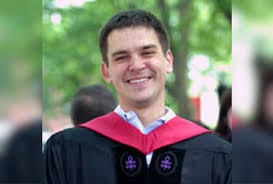
Scotten wrote -
“[Any] assistant U.S. attorney would know
that our laws and traditions do not allow using the prosecutorial power to influence other citizens, much less elected officials, in this way. If no lawyer within earshot of the President is willing to give him that advice, then I expect you will eventually find someone who is enough of a fool, or enough of a coward, to file your motion. But it was never going to be me.”
Here is his resignation letter.
Tariffs, Tariffs everywhere or is it anywhere?
The bully in the White House keeps delaying and delaying threatened tariffs.
He expected that each authorized tariff would bring a country to its knees, begging for relief. Instead his threats have been met with resistance.
Trump is finding resistance in many places.
Below are two examples of resistance. 👇
Retaliation Against Canada Won’t Work This Time
By Chrystia Freeland
Ms. Freeland is a member of the Canadian Parliament, a former deputy prime minister, and a candidate for leader of the Liberal Party and prime minister. She wrote from Vancouver.
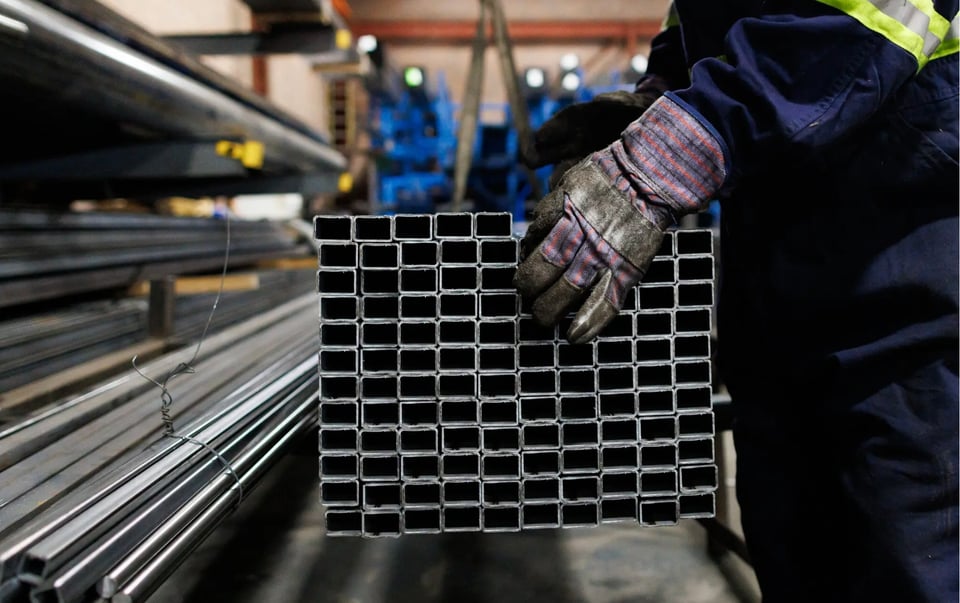
A 25 percent tariff on Canadian aluminum is an act of self-harm — economic self-mutilation — by the United States.
President Trump’s announcement on Monday that he was raising tariffs on all imports of steel and aluminum to 25 percent was all too familiar to Canadians, and to me, personally.
In 2018, when I was Canada’s foreign minister, the United States — our longtime friend, neighbor and military ally — imposed unjustified tariffs on Canadian steel and aluminum under a flimsy and frankly insulting national-security pretext.
Now, just four weeks into his second term, President Trump is once again upending the global trading order. First, he targeted America’s trade treaty partners Canada and Mexico with sweeping 25 percent tariffs, from which we have received a temporary reprieve. Days later, he imposed steel and aluminum tariffs on us and the rest of the world.
I saw this coming. As deputy prime minister and finance minister, I understood the threat posed by Mr. Trump’s aggressive economic nationalism. From the moment he was elected, I argued Canada needed to prepare for an emboldened Trump 2.0 who was intent on using trade as a weapon to sow chaos and scare capital and investment from all markets other than the United States.
Some Americans may feel this “might makes right” approach suits the current economic situation. The problem is that it will hurt America’s economy, too. Higher costs for supplies of steel and aluminum will hurt the very manufacturers and consumers President Trump claims to support.
Canada is the largest source of aluminum for the United States, sending it 3.2 million metric tons last year. Given the intense heat required to produce it, aluminum is electricity in physical form. That means that a tariff on Canadian aluminum is a tax on energy — at a time when the United States desperately needs more power to supercharge its A.I. race with China.
Canadians need to understand the cards we hold. And we have to be prepared to play them.
In 2018, Canada imposed dollar-for-dollar retaliation on 16.6 billion in Canadian dollars in U.S. steel, aluminum and other imports, deliberately targeting products from red states like Florida orange juice and Wisconsin cheese.
Mr. Trump may not care much about the objections of people in Canada — or Mexico or the European Union or South Korea — but he does care about American workers and businesses. If exporters feeling the squeeze from tit-for-tat tariffs start calling the White House, the pressure on the administration to reverse course will grow.
Such pushback led to the lifting of the tariffs on Canada in 2019 and it will work again now. All the steel- and aluminum-producing countries affected by these tariffs should impose dollar-for-dollar retaliation. We need to choose our targets with care. One hundred percent tariffs on Teslas, imposed by every country in the world, would be a good place to start.
The retaliation list should be published immediately to allow for maximum pressure on the administration from the American industries and workers we will target. These Trump tariffs are scheduled to come into effect on March 12. By then, Canada will have a new prime minister (I am one of the candidates) and that person must be prepared to act immediately.
These new import taxes, known as Section 232 tariffs, are a turning point for Canada and the world because they suggest the United States is making a historic change in its understanding of who its friends are, and indeed of whether it is interested in having any friends at all.
To his credit, President Trump was the first Western leader to recognize that the China shock is real for American workers, that China-driven global financial imbalances are unsustainable and that Chinese dominance of global technology would threaten the United States.
Naming these realities, which the international economic establishment was long reluctant to acknowledge, helped Mr. Trump get elected twice.
Here’s the rub. Actually fixing these problems will be much easier with the help of America’s stalwart friends, particularly Canada. And, at least before the past 10 days, we were keen to join your fight.
After all, our workers and our industries have suffered from the China shock just as America’s have. And we have had our own difficulties with Beijing, as President Trump should well remember.
America First need not mean America Alone. Indeed, the great rebalancing of the global economy that President Trump seeks can be accomplished best in cooperation with America’s traditional allies.
But if America, which controls approximately 25 percent of the global economy, pursues a punishing trade war with Canada and its other allies, all of us will have no choice but to seek other friends, wherever we can find them.
It is easy to see why a superpower might be attracted to splendid isolation. But it is the sometimes tedious, time-consuming work of cooperation with friends that will give Americans the best chance of recapturing the peace and prosperity achieved by the alliance-builders of the “greatest generation.”
Mitch McConnell: Trump's tariffs will hurt KY industries.
In Kentucky, local storeowners are already hearing about their suppliers’ prices going up. One estimate suggests President Trump’s tariffs could cost the average Kentuckian up to $1,200 each year.
Key Points.
- Tariffs are bad policy that make it more expensive to do business in America, driving up consumer costs.
- The Trump administration's broad-based tariffs could have long-term consequences for Kentucky businesses that sell their products around the globe or rely on global supply chains.
- Preserving the long-term prosperity of American industry and workers requires working with our allies, not against them.
- Trade wars hurt working people the most.
Little under a century ago, an ill-fated law helped spiral the Wall Street crash of 1929 into a worldwide depression. The Smoot-Hawley Tariff encompassed roughly one-quarter of all imports, flaring tensions with U.S. trading partners and halving American imports and exports as a result. Caught in the crosshairs, Americans learned the hard way that trade wars are expensive, and today, we ought to be careful deciding with whom to pick them.
In recent weeks, the president sought to impose sweeping tariffs on Mexico, Canada and China, as well as key imports, such as steel and aluminum. While the administration walked back plans to levy 25% duties on imports from Mexico and Canada — paused now for 30 days as both nations brokered deals to tighten border security and crack down on illegal drugs — the president’s aggressive proposals leave big, lingering concerns for American industry and workers.
Indeed, it’s high time for America’s closest neighbors to take the crisis at our border seriously. But no matter our best intentions, tariffs are bad policy. As Sen. Rand Paul, put it: “Tariffs are simply taxes… Taxing trade will mean less trade and higher prices.” So Republicans ought to be clear-eyed about the full, unadulterated impact of tariffs as we work to restore sound fiscal policy to our government.
Blanket tariffs make it more expensive to do business in America, driving up costs for consumers across the board. These aren’t just abstract concerns. Broad-based tariffs could have long-term consequences right in our backyard. Consider our state’s 75,000 family farms that sell their crops around the globe, or the hardworking Kentuckians who craft 95% of the world’s bourbon, or our auto industry that relies on global supply chains to support the livelihoods of thousands of workers in the commonwealth.
Tariffs could cost average Kentuckian $1,200 a year
In Kentucky, local storeowners are already hearing about their suppliers’ prices going up. One estimate suggests the president’s tariffs could cost the average Kentuckian up to $1,200 each year. And it’s not just about rising prices here at home. During the last Trump administration, retaliatory tariffs from trade partners set off a broader trade war that hit wide swaths of American industry, from agriculture to manufacturing to aerospace and motor vehicles to distilled spirits. Already, Canada announced retaliatory measures that take direct aim at Kentucky production, targeting products like peanut butter and whiskey.
Hundreds of thousands of U.S. jobs are tied up, directly or indirectly, in trade with Canada and Mexico. Our neighbors to the north and south buy over half a trillion dollars’ worth of our goods and services each year — including nearly $10 billion in manufactured goods and $300 million in agricultural exports from Kentucky alone. These economic tailwinds touch virtually every family and every industry.
International trade is a two-way street
America’s open markets also fuel billions in capital investment from businesses abroad. In Kentucky, over 60% of all counties are home to at least one international business. These are industrial suppliers, auto manufacturers and makers of consumer goods from across the world that support roughly 100,000 jobs in the commonwealth. But these investments don’t happen on their own. Foreign businesses choose America because they can count on our commitment to free markets and free enterprise. Sudden shifts to protectionism undermine the certainty these companies rely on to do business in the United States. (Op-Ed, Louisville Courier-Journal)
One more thing.
Trump probably didn’t expect resistance to taking over GAZA from this corner of the globe. 👇
BREAKING:
— Globe Eye News (@GlobeEyeNews) February 12, 2025
China says Gaza belongs to the Palestinians and that it is against forced displacement. pic.twitter.com/L43YJe7A8g
Breakin - Candidates who will make a difference.
Tim Walz. Senator from Minnesota.
🚨NEW: Governor Tim Walz is considering a run for the U.S. Senate in Minnesota after Tina Smith announced she is retiring in 2026.
— Protect Kamala Harris ✊ (@DisavowTrump20) February 13, 2025
RETWEET if you would support @GovTimWalz for U.S. Senate! pic.twitter.com/ORN641sYw0
Abigail Spanberger, Governor of Virginia.
Liberal Vets Group Gives Spanberger Boost in Virginia Governor’s Race
The $500,000 donation to the campaign of Abigail Spanberger, a former representative and C.I.A. officer, is the largest direct contribution in VoteVets’ 20-year history.
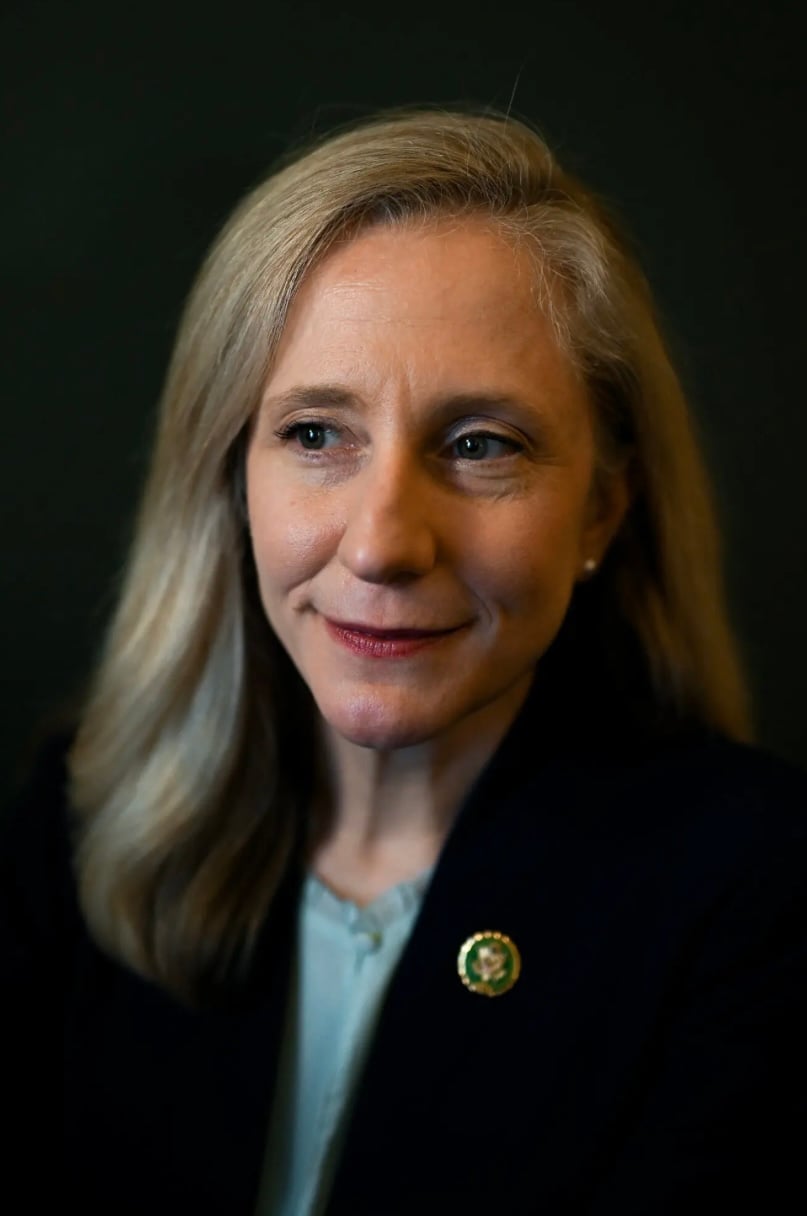
This fall’s Virginia governor’s race, in which former Representative Abigail Spanberger is considered the Democratic front-runner, will be read as a sign of the nation’s political direction.
A Democratic group promoting veterans running for office is sending $500,000 to Abigail Spanberger in support of her run in this year’s Virginia governor’s race, pointing to the former C.I.A. officer as the type of candidate who can help the Democratic Party return to power.
The direct donation is the largest in the 20-year history of the group, VoteVets, and appears to be the largest to date for Ms. Spanberger, a former member of Congress who opted against running for re-election in 2024 to pursue the governorship. There are no limits on campaign contributions in Virginia state elections.
Ms. Spanberger, 45, is considered the favorite to win the Democratic nomination, with no other top-tier Democrat so far in the race. She is expected to face the state’s Republican lieutenant governor, Winsome Earle-Sears, 60 and a Marine veteran herself. The contest, along with a race for governor in New Jersey, will be closely watched this fall for signs of the nation’s political direction 10 months into President Trump’s second term.
“We know that investing in candidates like Abigail is key to Democrats’ success,” VoteVets wrote in a memo provided to The New York Times, noting that 600,000 veterans and 120,000 active-duty service members live in Virginia.
A Mason-Dixon poll released last month showed Ms. Earle-Sears narrowly behind Ms. Spanberger, 44 percent to 47 percent, and slightly ahead of Representative Bobby Scott, Democrat of Virginia, 46 percent to 44 percent.
Mr. Scott has not ruled out a run, but he has not sounded like a candidate of late, telling a local reporter this month that Mr. Trump is “keeping me too busy in Washington right now.”
Ms. Spanberger ended last year with $6.5 million in the bank, and Ms. Earle-Sears had $2.1 million, records show. The race is expected to cost far more than that.
Ms. Spanberger flipped a Republican-held congressional seat in 2018, part of a class of moderate Democrats who helped take the House in a Democratic landslide. She used her history as a covert C.I.A. officer overseas to appeal to voters in a district that included the suburbs of Richmond, Va., and parts of exurban Washington.
During the Biden years, she cautioned her party against overreaching, especially after Glenn Youngkin, a Republican, won the Virginia governorship in 2021.
“Nobody elected him to be F.D.R.,” she said of President Joseph R. Biden Jr. at the time, urging him to temper his sweeping agenda. “They elected him to be normal and stop the chaos.”
In its memo, VoteVets, which spent roughly $30 million during the 2024 elections, noted that a number of Democratic candidates with national security credentials won key races last year, including Senators Elissa Slotkin of Michigan and Ruben Gallego of Arizona, both of whom succeeded in states that Mr. Trump carried.
“We understand greatly the need to recruit and build up a roster of veteran and military candidates to retake the House and Senate,” the group wrote. (New York Times).
Republican resistance has been small.
Republican Senator Jason Moran of Kansas, Republican Congressman Gary Palmer of Alabama and now 👇 Republican Senator Roger Wicker of Mississippi.
Keep calling your Elected Officials. It will surely grow as Trump behavior endangers us more and more.
GOP Senator Roger Wicker on Pete Hegseth’s NATO speech, where he stated that Ukraine won’t return to its pre-2014 borders and won’t gain NATO membership:
— Republicans against Trump (@RpsAgainstTrump) February 14, 2025
“I don’t know who wrote the speech — it is the kind of thing Tucker Carlson could have written, and Carlson is a fool.… pic.twitter.com/i6kfRCi63E
Governors who make a difference.
Kentucky joins litigation to stop President Trump's federal funding freeze https://t.co/QXUKOQcJxj
— WDRB News (@WDRBNews) February 14, 2025
Gov Wes Moore is putting up a new website for resources for federal employees in Maryland impacted by Trump's attempts to slash jobs.
— Jayne Miller (@jemillerbalt) February 14, 2025
160,000 federal jobs in Maryland. pic.twitter.com/rqq5Lvjdce
To protect Pennsylvania's interests and the funding appropriated to us by Congress, I’m left with no choice but to pursue legal action to defend our Commonwealth. pic.twitter.com/fDOpuqVrWt
— Governor Josh Shapiro (@GovernorShapiro) February 13, 2025
A New York Times Reporter shows some hutzpah.
Headlines from today:
— Peter Baker (@peterbakernyt) February 14, 2025
Vice President Vance Accuses European Leaders of Censoring Free Speech
White House Bars Associated Press From Spaces Like Oval Office and Air Force One
A side note.
Thanks to Roundup Consultant Linda Wharton, I have been reading Stephanie Dray’s Becoming Madame Secretary, a fictionalized account of the life of Frances Perkins, FDR’s Secretary of Labor and the first woman in a Presidential cabinet.
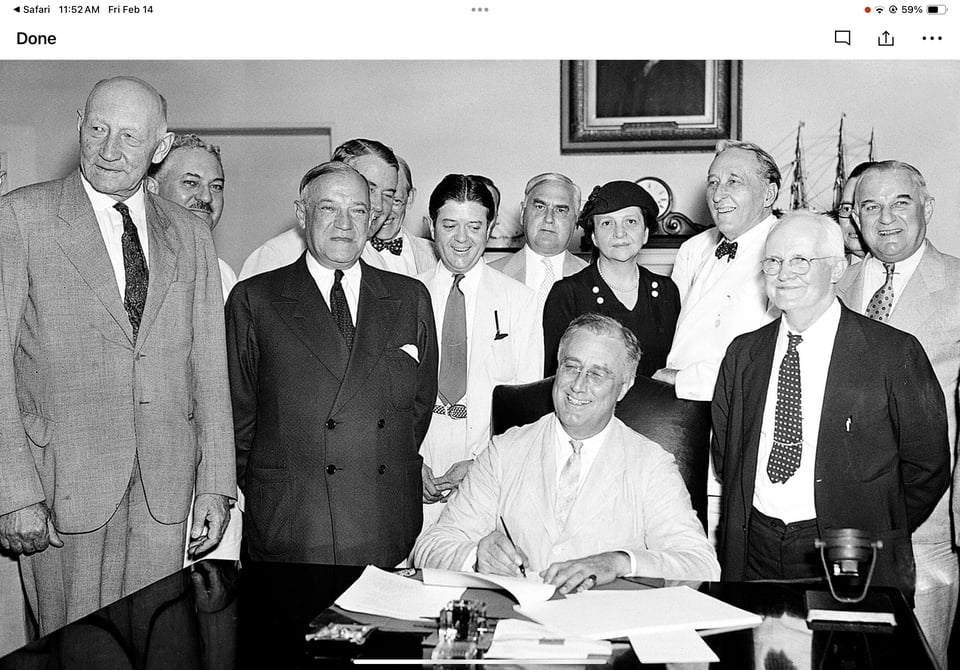
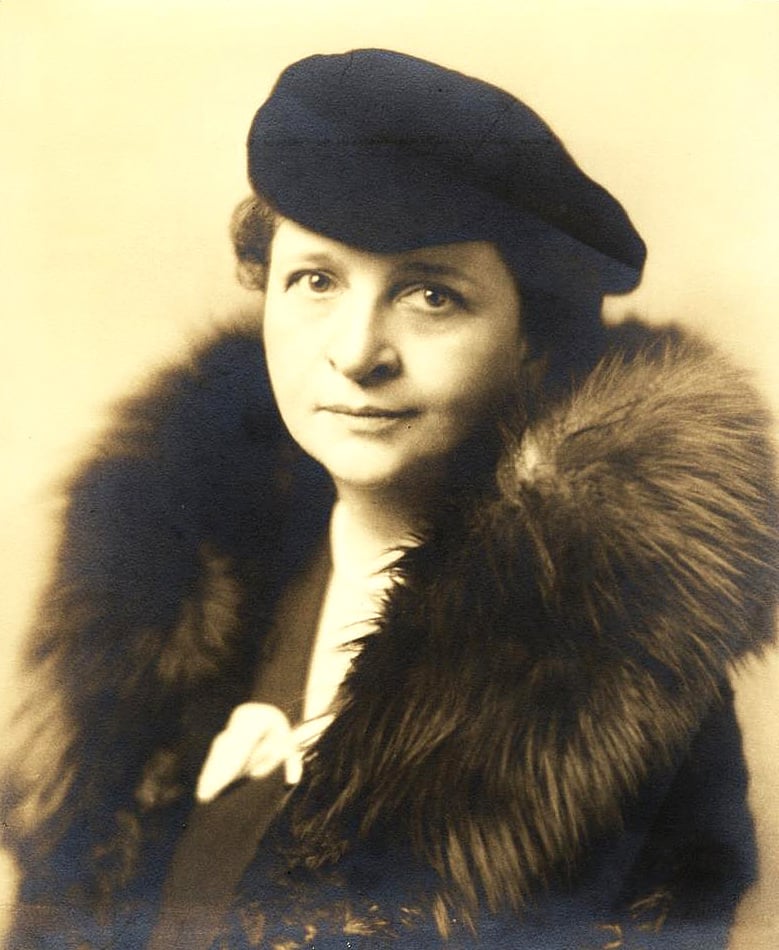
My favorite line in a book filled with a barrage of wonderfully recounted life situations with political overtones and powerful words is this:
From Dorothy Thompson, when Bureau Chief in Berlin for the New York Times interviewed Adolf Hitler -
He is inconsequential and voluble, ill-poised, insecure. He is the very prototype of the Little Man.
Sounds familiar?
History provides reminders, warnings and hope.